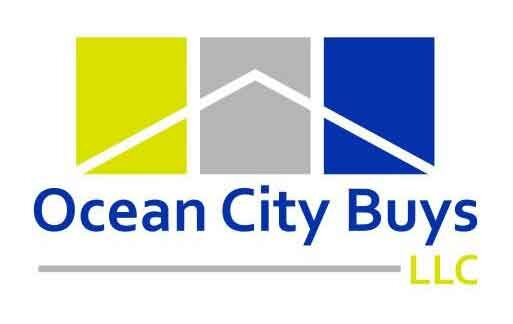Real estate closing costs in Connecticut are a fact of life in home sales. Anyone that thinks buy my house in Connecticut, is familiar with the term and understands they are part of the sale process.
Fortunately, the closing costs associated with selling your house in Connecticut are not nearly as intimidating as they sound. With proper advice and guidance from the appropriate sources, closing costs can be one of the smoothest aspects of the Connecticut real estate market.
The following is a rundown of the closing costs associated with any house sale.

What are Closing Costs?
In a nutshell, closing costs are expenses and fees associated with purchasing a Connecticut home due on closing day. There are several steps and facets involved in ratifying an official closing.
Purchase Agreement
A purchase agreement is a purchase price and offers the prospective buyer has proposed to the seller and the seller has accepted in principle. It includes stipulations attached to the sale that are not related to the sale price but are mandatory for the legal closing of the sale.
The purchase agreement will also have a proposed closing date.
Closing Process
The closing process begins when the seller has accepted, signed, and returned a purchase agreement. At that point, the proposed closing date is made official. Involved in the closing process are:
- Seller
- Buyer
- Real estate agent
- Applicable attorneys
- Mortgage lender
- Personnel from the settlement agency (the title company)
There are four phases with any closing process:
Order Opening
The opening of an order is when the closing gets approved by the lender or real estate agent. Further, the settlement company informs all parties involved in the transaction of its involvement and sets a closing date.
Closing Prep
Closing prep is when sale issues get addressed and closing documents get drafted. In some states, verification inspections get completed during this phase and the lender puts home sale funds in escrow. After addressing any outstanding issues, the order is considered balanced.
Closing Date
The closing date is when the closing documents are signed, the escrow account releases funds, and the seller transfers possession of the property to the buyer.
Post Closing
In the Post Closing phase, all agreements get recorded with the appropriate municipal authorities.
Each part of the sales and closing process costs money. Those costs have to be squared before any official transaction can occur. Those expenses are called closing costs.
Specific Closing Cost Components
While every real estate transaction is unique, some commonalities make up for every transaction and associated closing costs. Here are the basic fees that are associated with most closing costs.
Loan Origination Fees
Loan Origination Fees are the total cost of processing and underwriting the loan to purchase the property. It usually costs between half a percent to a percent of the total loan amount. Loan origination fees include, but are not limited to:
- Application fee
- Title Search and land records research
- Buyer background and credit score research
- Costs with establishing and applying for an FHA loan as a first time homebuyer
- Administrative costs
Appraisal Fees and Survey Fees
Appraisal and survey fees verify the fair market value of a home. The amount of the fees varies from region to region. Both usually cost several hundred dollars.
Title Insurance
Title insurance protects the buyer and lender from financial loss because of defects in a title to a property that is the fault of the home seller. Defects include but are not limited to liens on the property, penalties owed to an HOA, owed back taxes, issues with wills or probate, etc.
The upfront fee charged for this also includes deep research of the title to identify any outstanding issues.
Homeowner Insurance
Usually, the first year of homeowner insurance gets paid at the closing.
Private Mortgage Insurance
Private Mortgage Insurance is an insurance policy on the amount loaned to the borrower. The mortgage insurance premium protects the lender in the event of a default. It is not mandatory but usually is required when the buyer puts less than 20 percent down on the sale price.
Mortgage Points
These are also known as discount points and are prepaid percentages of the purchase loan that the buyer pays to reduce the interest rate charged to the home loan. They get paid as part of the down payment. Typically, one point equals one percent of the loan. The cost of the points the buyer wants is due on the closing date.
Property Tax
While it varies from state to state, six months of advanced property tax is usually required to be paid at closing. There are also usually recording fees and transfer taxes associated with a sale as well that will be part of the overall tax burden related to the sale.
Closing or Escrow Fee
This fee is charged to the buyer by the escrow agent. The fee is typically 1 – 2 percent of the sale price.

Real Estate Attorney Fees
In states that require an attorney to oversee the sales process or serve as a seller’s or buyer’s agent, the attorney’s fees may be included as part of the closing costs. If you are hesitant to pay for legal counsel, since we buy houses in Bristol this fee can be completely avoided.
Miscellaneous Fees
There are other fees associated with the sale that may be due on the closing date. These can include:
- Credit report fees
- Costs for registering the sale, and any other fees that were incurred as a direct result of the process of selling the house.
- Seller closing costs, such as paying the conveyance tax or for a home warranty
- Real estate commissions based on the home’s sale price
- Any agreed-upon home inspection fees or associated costs
What are the Closing Costs in Connecticut?
Every state has its requirements and procedures about total closing costs, although the basics are very similar. Connecticut is no different.
Companies that buy houses in Norwalk will have all of the above costs, plus specific closing costs in Connecticut:
State and Local Conveyance Tax
The State of Connecticut attaches a uniform fee of one-half of one percent of the sale price, up to $800,000.00. Home sale costs that exceed $800 thousand are taxed at a higher rate. Some municipalities have their conveyance tax that is also due on the close date.
For home properties, state and local conveyance taxes are about 2.25% of the sale price. Your realtor can give you a better idea of what to expect
Commercial properties are taxed at 1 percent, with no sale price limitations.
Connecticut Closing Cost Inclusions
Purchasing or selling a house in Connecticut may have inclusions on which payment is due at closing.
Inclusions are fixtures that are the personal property of the seller, not attached to the house but are being left by the seller. Most often, inclusions are refrigerators, washers, dryers, or dishwashers.
Some furniture might also be included; that could be furniture that the seller no longer wants or can fit in their new home, such as a pool table, dining table, outside grilling station, etc. Each must be negotiated before the sale agreement is signed.
Closing costs for inclusions can be covered in one of four ways:
- Free to the buyer (but stipulated as such in the sale agreement)
- Covered in total by the buyer as part of the sale price
- Covered in total by the buyer as a separate cost, due at closing
- Covered by a separate sales agreement

Who Pays Closing Costs in Connecticut?
On the question of who pays closing costs in Connecticut, most, if not all, of the responsibility for paying closing costs in Connecticut fall on the buyer.
The seller might pay closing costs, but only as they are:
- Related to adhering to the Sales Agreement
- Related to enticing the buyer to accept a Sales Agreement
These might include paying an attorney or covering the conveyance tax for the purchaser. In rare circumstances, covering closing costs associated with the Sales Agreement may fall onto the seller.
Pros and Cons of Paying Closing Costs in Connecticut
There are a few pros and cons of paying closing costs in Connecticut. Any costs that are associated with securing a loan, downpayment, mortgage points, insurance, etc. are related to the buyer purchasing the home.
Pros of Paying Closing Costs in Connecticut
The most obvious pro is that paying closing costs means you are almost finished purchasing or selling a house in Connecticut. Except for the transfer of funds that happens after the close date (such as a seller paying off a mortgage,) once the closing costs are covered, the house sale is final.
Another pro to closing costs universally is that if done properly, whether you get the benefits of selling a house for cash or go the more traditional home mortgage route, all parties are getting what they want with the proper protections.
Cons of Paying Closing Costs in Connecticut
There are also a few drawbacks to closing costs associated with selling a house in Connecticut. One is the conveyance tax, which can be thousands of dollars and can be a double-hit, both to the state and locally.
Another con related to the closing of a house sale is if you and your real estate agent have overlooked something, or something that is not covered by insurance happens to the house or inclusions.
For example, if the seller did not purchase a home warranty and the next day a storm damages the home, the buyer is on the hook for the cost of repair.
The amount of cash due when covering closing costs in Connecticut is also an issue, especially if the first mortgage payment is due soon after. Buying a home in Connecticut is not inexpensive even if you try to utilize the cheapest ways to sell your house.
A buyer can expect that above and beyond a mortgage, there will be a sizable amount of cash outlays related to closing the sale and getting moved into the new space.
Final Thoughts
Closing costs are a fact of life with any sale of a house. Making sure you understand what is included and expected as a buyer or seller is key to having a successful sale.
